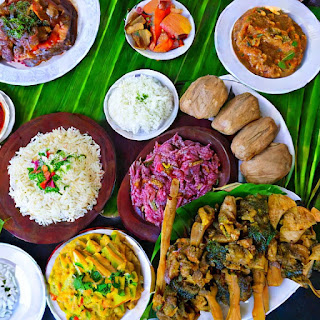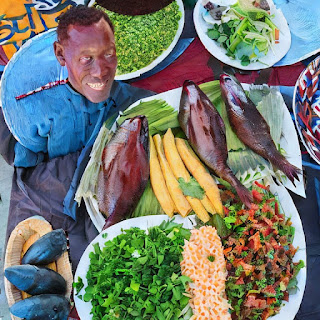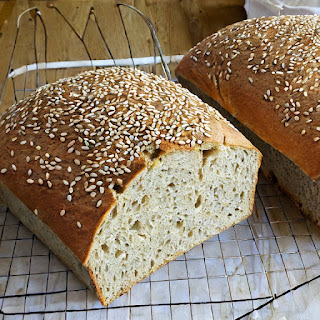The Splendid Flavors of Swahili Food
Welcome to our thorough introduction to Swahili cooking, a delicious culinary heritage that highlights the vivacious tastes of the Swahili-speaking region of East Africa. In this essay, we examine the history, components, and cultural importance of Swahili food, taking you on a tantalizing tour of the variety of dishes that give it its distinctive flavor.
Blending of cultures
African, Arab, Persian, Indian, and European culinary traditions are harmoniously combined in Swahili cuisine, which reflects the area's long history of commerce and cultural interchange. This blending of tastes, methods, and ingredients results in a truly amazing culinary tapestry that will surely enchant your taste buds.
Ingredients essentials:
1. Coconut
Several dishes in Swahili cuisine use coconut, which gives them a creamy, tropical flavor. Whether it's coconut milk, coconut oil, or freshly grated coconut, this adaptable ingredient may be found in a wide range of dishes, including curries, stews, and desserts.
2. Spicy foods
The spirit and the lifeblood of Swahili cooking are spices. The vivid spice combinations, which draw taste inspiration from both Arab and Indian cuisine, give food an enticing scent and rich flavor. The spice mixtures employed in Swahili cookery are as varied as the civilizations that have created the area, ranging from the sweltering heat of chili peppers to the coziness of cinnamon, cardamom, and cloves.
3. FRESH FISH
The Swahili coast, which is situated along the Indian Ocean, is home to an abundance of fresh fish. The bounty of the ocean is celebrated in Swahili cuisine, which features delicious seafood like tilapia and snapper as well as exquisite prawns and lobster. In many classic meals, seafood takes center stage, whether it is grilled, fried, or stewed in flavorful sauces.
4. Rice with Plantains
The two main grains used in Swahili cooking are plantains and rice. A starchy-textured kind of banana known as a plantain is frequently fried and made into chips or served as a side dish. The savory curries and stews that characterize the cuisine go perfectly with rice, whether it is basic or flavored with aromatic spices.
Famous Swahili Recipes
1. Biriani
Rice is cooked with a variety of aromatic spices, meat, and vegetables in a meal called biriani. This flavorful one-pot masterpiece, which mixes Indian influences with ingredients that are readily accessible locally, exemplifies the gastronomic richness of Swahili cuisine. The varying textures and tastes of biriani make it a culinary treat.
2. Nyama Choma
East Africa's favorite food is called nyama Choma, which translates to "roasted meat" in Swahili. Before being grilled to perfection, succulent cuts of meat, such beef, goat, or chicken, are marinated in a mouthwatering concoction of spices. The traditional maize flour porridge ugali is frequently served as a side dish with this smokey and delicious treat.
3. Samaki Wa Kupaka
A delicious fish curry made with coconut that wonderfully captures the spirit of Swahili cooking is called Samaki Wa Kupaka. Fresh fish fillets are cooked in a flavorful sauce that contains tomatoes, coconut milk, and a variety of fragrant spices. With each taste, the outcome is a delectable fusion of creamy, tangy, and spicy flavors that will take you to the Swahili coast.
4. Viazi Karai
Spiced Fried Potatoes, also known as Viazi Karai, are a common street food snack in the area. Sliced potatoes are seasoned with a fragrant spice mixture, usually consisting of chili powder, cumin, and turmeric, and then deep-fried till crisp and golden. These irresistible snacks are sometimes eaten with a tart coconut or tamarind chutney.
5. Mkate wa Ufuta
Sesame Seed Bread, also known as Mkate wa Ufuta, is a typical Swahili bread that gives any meal a delicious nutty flavor. This bread, which is generally eaten with savory foods or used as a basis for sandwiches, is made using a combination of wheat flour, sesame seeds, and yeast.
The Importance of Swahili Food
In addition to its delectable tastes, Swahili food is quite important culturally. It represents the rich ancestry and identity of the Swahili people while acting as a strong link to their history and traditions. Every dish in Swahili cuisine has a narrative and depicts a fusion of several cultures, making it a representation of peace and unity.
Examining Swahili Cuisine
Beyond the plate, Swahili food has several forms. It is intricately entwined with Swahili culture's traditions, customs, and social events. Food has a crucial part in creating relationships, exchanging tales, and developing links within the community, from grandiose feasts during celebratory occasions to the communal act of breaking bread together.
A Taste of
Swahili Cuisine
You don't need to go to East Africa to sample the mouthwatering tastes of Swahili food if you find yourself captivated by them. Around the world, there are several eateries with a Swahili theme that provide a taste of this thriving culinary culture. Explore their menus to experience the diversity of Swahili cuisine in your own city.
Explore More of our Recipes here
Conclusion
A gastronomic experience awaits you in the rich trove of tastes, hues, and smells that is Swahili cuisine. Swahili cuisine has the ability to take your taste buds to the exotic shores of the Swahili coast thanks to its combination of many cultural influences and use of fresh, fragrant ingredients. Each dish, from the aromatic biriani to the succulent nyama choma and the creamy samaki wa kupaka, is a monument to the beauty and depth of this exceptional culinary legacy.
Swahili Cuisine Frequently Asked Questions (FAQ)
What basic components are used in Swahili cooking?
Coconut, spices (including chili peppers, cinnamon, cardamom, and cloves), fresh fish, plantains, and rice are some of the basic components of Swahili cuisine. These items help give Swahili cuisine its unique tastes and fragrances.
What traditional Swahili cuisine are famous?
The variety and complexity of Swahili cuisine are demonstrated through a number of renowned dishes. Examples include viazi karai (spiced fried potatoes), mkate wa ufuta (sesame seed bread), nyama choma (roasted beef), samaki wa kupaka (fish curry made with coconut), and biriani (fragrant rice dish with spices, meat, and vegetables).
How hot is Swahili food?
Swahili food may be hot, yes. The robust and savory quality of many Swahili cuisine is a result of the use of fragrant spices like chili peppers and a range of spice mixes. The degree of heat can change, though, depending on the food and the individual.
Where can I sample Swahili food?
Even though Swahili food has its roots in the East African region, you can find restaurants and eateries with Swahili-inspired menus all over the world. These places provide a chance to experience and enjoy the genuine Swahili tastes of foods without having to go to East Africa.
What role does Swahili food have in culture?
Because it exemplifies the blending of several cultures and reflects the history and customs of the Swahili people, Swahili food has great cultural significance. Through shared meals and culinary experiences, it promotes relationships and strengthens community ties as a symbol of togetherness and tradition.
Does Swahili food provide vegetarian or vegan options?
Yes, there are several vegetarian and vegan alternatives in Swahili cuisine. Vegetables, lentils, and grains are frequently used as main components in traditional cuisines. Curries made with coconut, vegetable stews, and savory rice dishes are a few examples.
How can I add Swahili tastes to the food I make?
You might start by experimenting with the essential ingredients and spice combinations used in Swahili cuisine to add Swahili flavour to your own cooking. Add coconut milk, flavorful spices, and fresh seafood, or experiment with plantains and rice for vegetarian dishes. Online resources and recipes can offer direction and inspiration.
Are Swahili foods acceptable for those with allergies or dietary restrictions?
There are several possibilities in Swahili cuisine that can satisfy different dietary needs and sensitivities. Numerous recipes may be altered to meet certain requirements, whether it is by picking vegetarian or vegan variants, gluten-free options, or changing the spice levels to one's liking. When eating out or making meals, it is usually helpful to let others know about any dietary restrictions or allergies you may have.
Where can I find out more about Swahili food?
You may join cooking lessons or seminars that emphasize African food to learn more about the world of Swahili cuisine, as well as peruse cookbooks devoted to East African cookery.





















